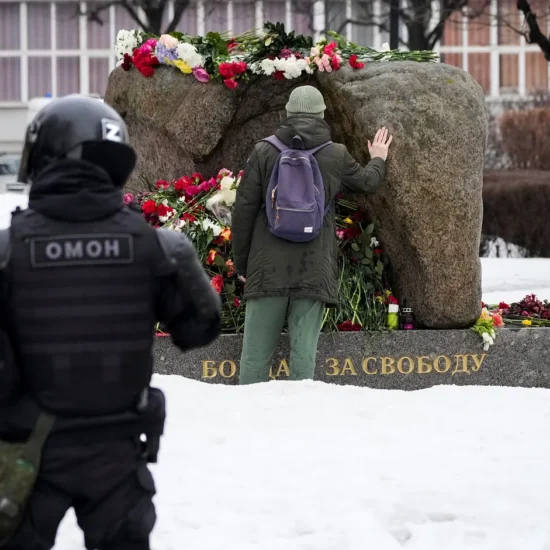

GOOD AND EVIL IN THE GARDEN OF DEMOCRACY. By Rodney Wallace Kennedy. Eugene, OR: Cascade Books, 2023. Xv + 225 pages.
Is democracy under threat in the United States? You can make a good case that efforts are underway, whether intentional or not, that are undermining our democracy. We see this expressed in efforts to limit voting rights and extreme gerrymandering of representative districts. We hear it in the arguments being made on the part of growing numbers of people, especially persons affiliated with the Republican Party, that the United States is a republic and not a democracy as if these are mutually exclusive categories. As a response, I will simply point to the United Kingdom, which is both a democracy and a monarchy. As with a republic, a monarchy can be a democracy. The danger here is that even as democracy is being undermined and devalued in the United States, autocracy and authoritarianism are on the rise. It’s not just here in the United States but elsewhere, including in places like Hungary, where Victor Orban has instituted a form of Christian nationalism that many in the United States on the Right wish to emulate. Something is afoot that is eroding support for democracy in the United States. That’s a big problem.

Robert D. Cornwall
The current face of this authoritarian movement is Donald Trump, but he’s not alone. We see similar traits in people like Ron DeSantis, Governor of Florida and recently announced Presidential candidate. When it comes to Donald Trump, who often claims that he alone can solve the world’s problems, a claim that in itself has authoritarian dimensions, has displayed admiration for figures with totalitarian proclivities, such as Vladimir Putin, Kim Jong Un, and Xi Jinping. He has even expressed jealousy of Xi, who is President for Life, something he seems to desire for himself. One might ask if Donald Trump is a threat to democracy in the United States. The answer is, possibly. When I say that he is a possible threat to democracy it’s not because of anything he has in his power, but because he has developed a cadre of supporters with a near cultish embrace of him. That cult of personality has become a significant power within the Republican Party, much of which still believes that Trump is the current President of the United States. The question that we face here, in reading the book Good and Evil in the Garden of Democracy is whether Trump is the embodiment of evil, something akin to the Devil incarnate.
Rodney Wallace Kennedy raises the possibility that Donald Trump is the embodiment of evil in his latest book, Good and Evil in the Garden of Democracy. It’s a provocative perspective, one that I struggle with. I can see why he might make that charge but there are elements of the argument that I feel are problematic. Nevertheless, it is a conversation we need to have, especially in light of the growing presence of Christian Nationalism in this country, an ideology that corrupts the gospel for political gain.
Regarding the author: Rodney Wallace Kennedy is a Baptist pastor and homiletics instructor at Palmer Theological Seminary. He has a Ph.D. in rhetoric from LSU and it is his background in rhetoric that serves as a foundation to the book. While Kennedy draws on his background in theology, it is his background in rhetoric that seems to drive Kennedy’s argument that Donald Trump is the embodiment of evil and that he must be stopped for the good of democracy in the United States. While I agree that Donald Trump is a threat to democracy and that he and the movement that has gathered around him needs to be stopped lest it undermines American democracy, I found myself uncomfortable with some of his rhetoric about whether Trump embodies evil. It seemed to me that he has pushed his rhetoric too far. Apparently, he is aware that some of us might feel that way because he acknowledges that this might be true for at least some of his readers. Nevertheless, Kennedy believes the threat is such that rhetoric some might think is overblown is necessary. He may be correct, but I need to register my discomfort at points.
Some of my concerns involve how I perceived some of the ways Kennedy envisioned the way good and evil work. I may have misread Kennedy’s intent in the book, but at points, it seemed as if he was suggesting that good and evil are two equally powerful cosmic powers with Trump, who in this picture embodies evil, pulling the strings of this movement of evil in our land. Do I believe that Trump is capable of evil? Most certainly. We know him to be a serial liar, a philanderer, and more. But is he the devil or a narcissistic conman? I tend to lean toward the latter. It has never appeared that Trump has a true ideology. He’s just about himself, and somehow, he’s been able to con a lot of people into believing what he apparently believes about himself, that he alone can solve the world’s problems. I will admit that when I hear Trump make such claims, in light of support from a significant number of Christians, he almost sounds like he might be the anti-Christ! But surely Christians wouldn’t embrace the anti-Christ, would they?
Kennedy writes that the thesis of Good and Evil in the Garden of Democracy is that Donald Trump provides us with a “template for understanding what is evil and what is good. He represents a form of evil that finds withering condemnation in Scripture, philosophy, and rhetoric. Trump is the most conspicuous advocate of the evil that often lurks in the religious realm, posing as goodness, greatness, strength, and wisdom” (p. 25). It is this template that Kennedy seeks to address, bringing together his reading of scripture and philosophy, together with his use of rhetoric, to uncover Trump’s threat to democracy.
Through the chapters that follow, Kennedy explores various dimensions of this template of evil. He begins his sense of what faces the country with Donald Trump in chapter one by exploring the concept of good and evil in Proverbs, using the author of Proverb’s contrast of the wise and loose woman. In this model, Trump represents the loose woman who entices the unwary into his web of evil. He suggests that similar tropes appear in Plato’s “Phaedrus.” According to Kennedy, “Trump is the evil rhetor who turns Yahweh’s wisdom upside down and who tries to draw others into his wrongheadedness and confusion by creating ethical chaos” (p. 102). Kennedy continues to draw out this wisdom theme, in chapter two, where he turns to the Psalms to create a picture of evil. He chooses to draw on the Psalms because, as he notes, the Hebrews “used praise as a primary weapon against evil” (p. 106). What we find in the Psalms, he believes, is a battle plan against evil that is rooted in praise and prayer.
Chapters three and four use rhetorical theory to explore the concepts of evil and good. He begins in chapter three focusing on the rhetoric of Hitler, suggesting that Trump mirrors in some ways Hitler’s rhetoric. In this case, he points to how both figures made use of the idea of victimization. We often hear from Trump that he is the victim of one form or another of a “witch hunt.” In doing this Trump often uses religious memes, appealing to feelings of victimhood on the part of some Christians. So, how did he take a nation that prided itself on its tolerance to embrace racism? He suggests four things that Trump was able to use in developing his response. First, he points to white resentment over President Obama being President. Second, Trump largely gained control of the Republican Party (though the 2022 Midterm results suggested that his power was weakening). Third, he convinced a lot of people he could make things better and safer. Finally, he carefully controlled his public image (p. 150). Then in chapter 4, Kennedy offers an alternative form of rhetoric in the form of a vision of the good as represented by the Czech democratic leader Vaclav Havel. Kennedy points out how Havel contrasted with Trump, in emphasizing qualities that emphasized: humility, empathy, and irony. It is the latter that we need, not Trump’s rhetoric.
Finally, in chapter 5, Kennedy lifts up the songs of democracy by Walt Whitman along with songs from the African American prophetic tradition, as well as the biblical Song of Solomon. In this chapter, Kennedy seeks to offer a different vision of society, wherein democracy can be preserved. He suggests that Whitman envisioned a society where everyone is involved and welcomed as opposed to the current partisan effort to appeal to the base. He writes that “the experience of being one united people — an actual ‘united’ States of America is the ground on which we can stand together as we argue, judge, evaluate, deliberate, discern, and draw the lines that make politics work. In a thriving democracy, everyone knows that politics is the conversation that people have to discover the goods we have in common” (p. 201). I agree with this assessment of democracy. While democracy is not a biblically defined political principle, it does seem to me to be the best, if not a perfect system that reflects values that many of us discern present in the teaching of Jesus.
I don’t disagree with the premise of the author that democracy is under threat from certain elements of our society, including Donald Trump and his followers. However, though Donald Trump is certainly an embodiment of that threat, I fear that by placing so much emphasis on him we may miss the greater threat to democracy that is bigger than Trump. Donald Trump may go away, but the antidemocratic sentiment, which seems to be combined with a certain evangelical spirit, will remain. Thus, I struggled reading the book. I know that there is a lot of truth to be found here. Nevertheless, at points I felt like he was pushing the envelope too far, creating even more tension than needs to be present. In the end, whether my view of the book is correct, we do have a problem in our land. Democracy is under threat.
Donald Trump might be an embodiment of evil or simply a narcissistic conman. Whatever is true, he is certainly the current face of a big problem facing our country. That many Christians have embraced his message is truly concerning. Here, in Good and Evil in the Garden of Democracy, Rodney Kennedy raises an issue of concern that we need to pay close attention to, even if, as is true for me, there are elements of rhetoric here that could push things too far. As we ponder the connection between Trump and evil, perhaps we should keep in mind Hannah Arendt’s observation concerning the normalness of Nazi war criminal Adolph Eichmann, leading to her observation as to the “banality of evil,” that is, evil can easily become normalized. Perhaps that is what we’re seeing with Trump and his self-centered rhetoric. If that is true, then Rodney Kennedy is right in his warnings not only about Trump but the attraction we may have to this threat to our democracy and well-being.
Editorial note: Rodney Kennedy serves as a contributing writer for Word&Way. He was a guest on our podcast Dangerous Dogma to talk about his previous book, The Immaculate Mistake: How Evangelicals Gave Birth to Donald Trump.
This review originally appeared on BobCornwall.com.
Robert D. Cornwall is an ordained minister in the Christian Church (Disciples of Christ). Now retired from his ministry at Central Woodward Christian Church (Disciples of Christ) of Troy, Michigan, he serves as Minister-at-Large in Troy. He holds a Ph.D. in Historical Theology from Fuller Theological Seminary and is the author of numerous books including his latest “Second Thoughts about the Second Coming: Understanding the End Times, Our Future, and Christian Hope” coauthored with Ronald J. Allen. His blog Ponderings on a Faith Journey can be found at www.bobcornwall.com.






